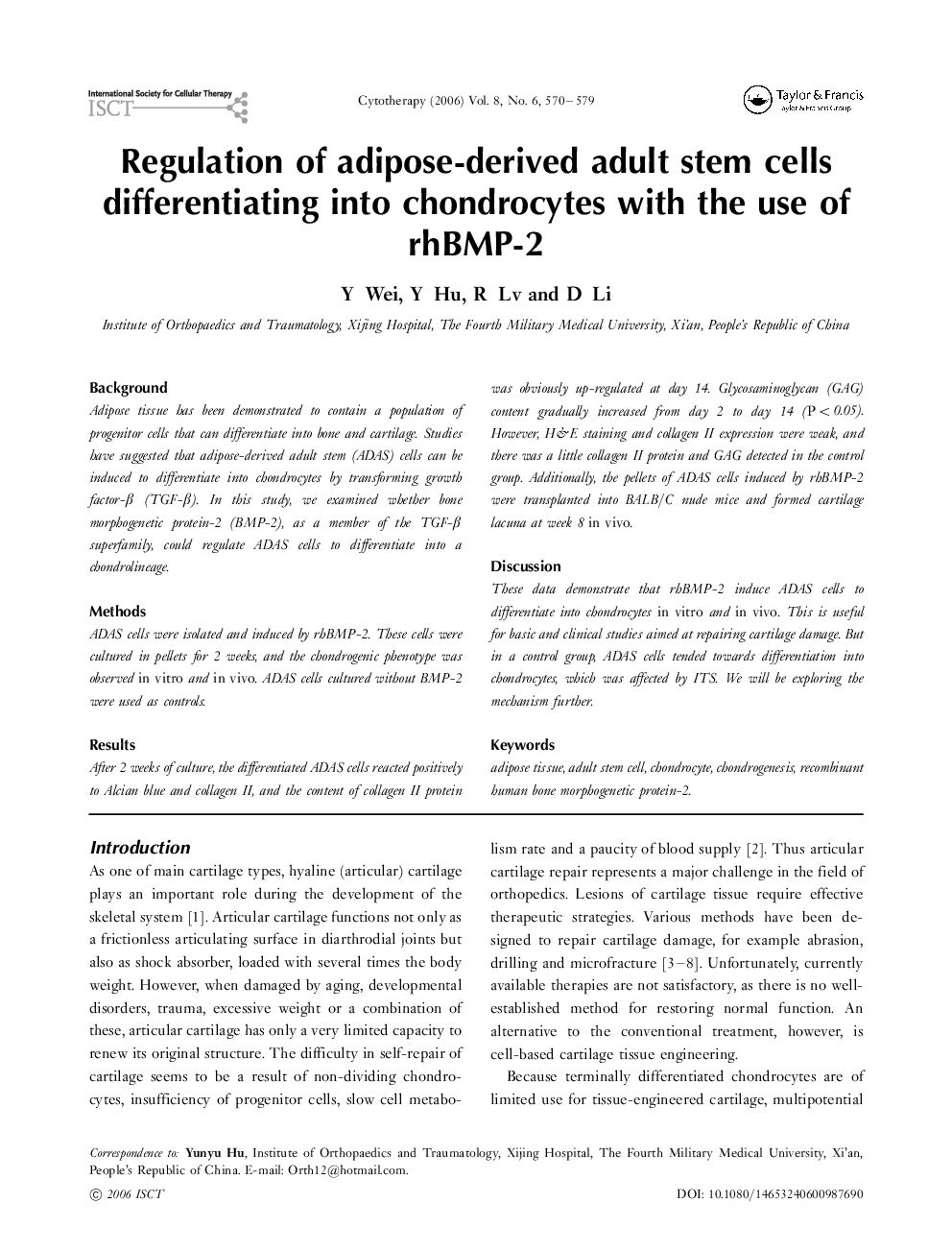| Article ID | Journal | Published Year | Pages | File Type |
|---|---|---|---|---|
| 2172589 | Cytotherapy | 2006 | 10 Pages |
BackgroundAdipose tissue has been demonstrated to contain a population of progenitor cells that can differentiate into bone and cartilage. Studies have suggested that adipose-derived adult stem (ADAS) cells can be induced to differentiate into chondrocytes by transforming growth factor-β (TGF-β). In this study, we examined whether bone morphogenetic protein-2 (BMP-2), as a member of the TGF-β superfamily, could regulate ADAS cells to differentiate into a chondrolineage.MethodsADAS cells were isolated and induced by rhBMP-2. These cells were cultured in pellets for 2 weeks, and the chondrogenic phenotype was observed in vitro and in vivo. ADAS cells cultured without BMP-2 were used as controls.ResultsAfter 2 weeks of culture, the differentiated ADAS cells reacted positively to Alcian blue and collagen II, and the content of collagen II protein was obviously up-regulated at day 14. Glycosaminoglycan (GAG) content gradually increased from day 2 to day 14 (P < 0.05). However, H&E staining and collagen II expression were weak, and there was a little collagen II protein and GAG detected in the control group. Additionally, the pellets of ADAS cells induced by rhBMP-2 were transplanted into BALB/C nude mice and formed cartilage lacuna at week 8 in vivo.DiscussionThese data demonstrate that rhBMP-2 induce ADAS cells to differentiate into chondrocytes in vitro and in vivo. This is useful for basic and clinical studies aimed at repairing cartilage damage. But in a control group, ADAS cells tended towards differentiation into chondrocytes, which was affected by ITS. We will be exploring the mechanism further.
